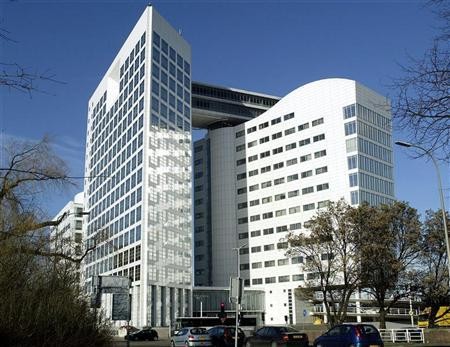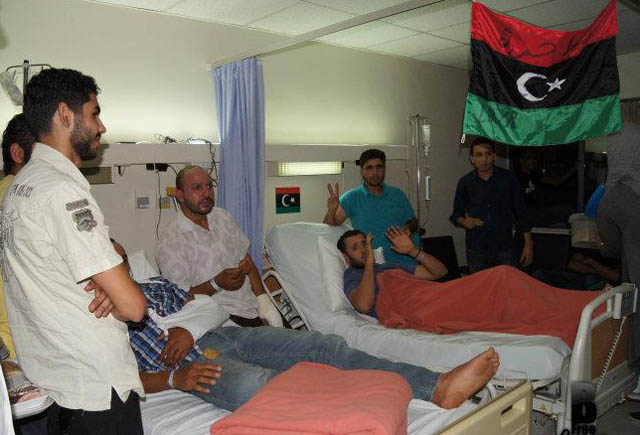By George Grant.
Tripoli, 23 June:

The International Criminal Court (ICC) has said that “appropriate sanctions” would be applied to any of its . . .[restrict]members found guilty of misconduct, following a visit to The Hague by Libya’s attorney general, Abdelaziz Al-Hassadi, yesterday.
During a meeting with ICC president Sang-Hyun Song and other officials, Al-Hassadi and his delegation presented the court with information that led to the detainment of Melinda Taylor and three other ICC representatives following a visit to Saif Al-Islam Qaddafi in Zintan on 7 June.
The court has never denied the allegations made by the Libyan authorities that Taylor attempted to pass suspect documents to Qaddafi, including letters believed to be from his fugitive right-hand man, Mohammed Ismail.
This is the first time the ICC has publicly acknowledged formally being in receipt of information regarding the incident.
Yesterday, the court said it “attaches great importance to the principle that its staff members, when carrying out their duties, should also respect national laws. The information reported by the Libyan authorities will be fully investigated in accordance with ICC procedures following the return of the four staff members… When the ICC has completed its investigation, the Court will ensure that anyone found responsible for any misconduct will be subject to appropriate sanctions.”
In what seemed close to an apology, the ICC also said it “deeply regrets any events that may have given rise to concerns on the part of the Libyan authorities. In carrying out its functions, the Court has no intention of doing anything that would undermine the national security of Libya”.
Following a visit to Libya earlier this week by the Australian foreign minister, Bob Carr, it was suggested that Taylor and her colleagues could be released in return for a formal apology from the court.
The court also appeared to move closer to agreeing to a Libyan trial of Saif Qaddafi:
“In fulfilling its mandate to end impunity and providing justice to victims, the ICC is ready to assist national authorities with their investigations if requests are submitted to the Court. The ICC is committed to continued mutual cooperation with the Libyan authorities and will do everything it can to assist them.”
On 1 June, the ICC postponed its request that Libya hand Saif over to them for trial pending its final determination of Libya’s challenge to the admissibility of the case. The challenge by the Libyan government concerns the ICC’s mandate to try a case only if the state in which it would otherwise be heard has proven itself either unable or unwilling to carry out the investigation or prosecution.
The ICC’s mandate in this regard was not in doubt when the case was first referred to it by the UN Security Council last year, during which time Libya was still ruled by Muammar Qaddafi, who was also wanted by the court.
With the Qaddafi regime now gone, Libya’s new government has argued that it is both able and willing to try Saif Qaddafi, and thus competent to take the case on from the ICC. [/restrict]









